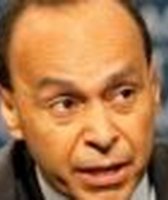Stand up for the facts!
Our only agenda is to publish the truth so you can be an informed participant in democracy.
We need your help.
I would like to contribute
Here's a list of the stories we're reading to better understand the current situation in Syria and the significance of the U.S. airstrikes.
Latest developments
Syria Deeply, an independent digital media project, offers nuanced, specific coverage of the war in Syria. The round-up is contextualized and regularly updated to include new information. Updates go beyond the airstrike and discuss the situation in other places in Syria.
What we know, what we don’t
The New York Times offers a quick, clear rundown of what they know and what they don’t know about the actions President Donald Trump took last night. Their podcast episode of The Daily, for April 7, 2017, includes an interview with Helene Cooper, the Times’ Pentagon reporter, laying out the details of the attack for those who prefer their news in audio.
Sign up for PolitiFact texts
Comparing choices: Obama and Trump
Atlantic Editor-in-Chief Jeffrey Goldberg draws on his 2016 interview with President Barack Obama to explain the differences between the decisions made to date by Obama and Trump.
Back to the site of the chemical attack
The Guardian reports on the current condition of Khan Sheikhun, the Syrian town where the chemical weapons attack took place. Kareem Shaheen was the first Western reporter to get into the town and interview residents. The article includes photos and maps of what the town looks like now.
Questions about U.S. policy.
The Brookings Institution suggest the need for consistent strikes to increase the credibility of American policy in regards to Syria. A senior foreign policy fellow for the think-tank breaks down what precipitated the U.S. attack and argues that the strike represented weakness rather than a serious change in diplomatic and military strategy and that the hastiness of the attack may prove to be problematic because Washington's desired political outcome is unclear.
What’s the point in having power if we can’t use it?
A defense and foreign policy analyst at the libertarian Cato Institute argues Trump’s response to the Syria strikes will be a yardstick for every successive foreign policy crisis and wonders about how Trump will deploy the power of the executive branch going forward.
Reactions to the airstrike
The New Yorker compiles the analysis of contributors Robin Wright, John Cassidy and Dexter Filkins, providing context and predictions on potential future steps.
Changing tone?
The editor-in-chief of War on the Rocks, a website that analyzes foreign policy, raises questions about the speed at which the administration has changed positions on Syria.
The web magazine, which specializes in analysis on foreign affairs and defense policy, provides a quick take on several angles of the story, including Trump’s consistency on his Syria policy and potential repercussions regarding the Russian government.
Consistent strategy
The National Review, meanwhile, emphasizes the necessity of American committment in their policy going forward. The conservative editors argue that the United States needs to pursue consistent engagement in the region after this strike, because if Syrian President Bashar Al-Assad retaliates, American military forces may become further engaged in the conflict, and they say it’s unlikely that a moderate or democratic regime could be put into place at this moment.
Today, we looked into whether Trump’s refugee policy might change after Syrian airstrikes. Find that article here.
Our Sources
Listed in story



































